Finwave Broker Review
Finwave presents itself as a modern trading platform offering AI-driven analytics, a wide range of trading instruments, and personal account managers. With bold claims of capital protection and impressive profitability, the broker appears attractive at first glance. However, upon closer inspection, several red flags raise serious concerns about the legitimacy of this operation.
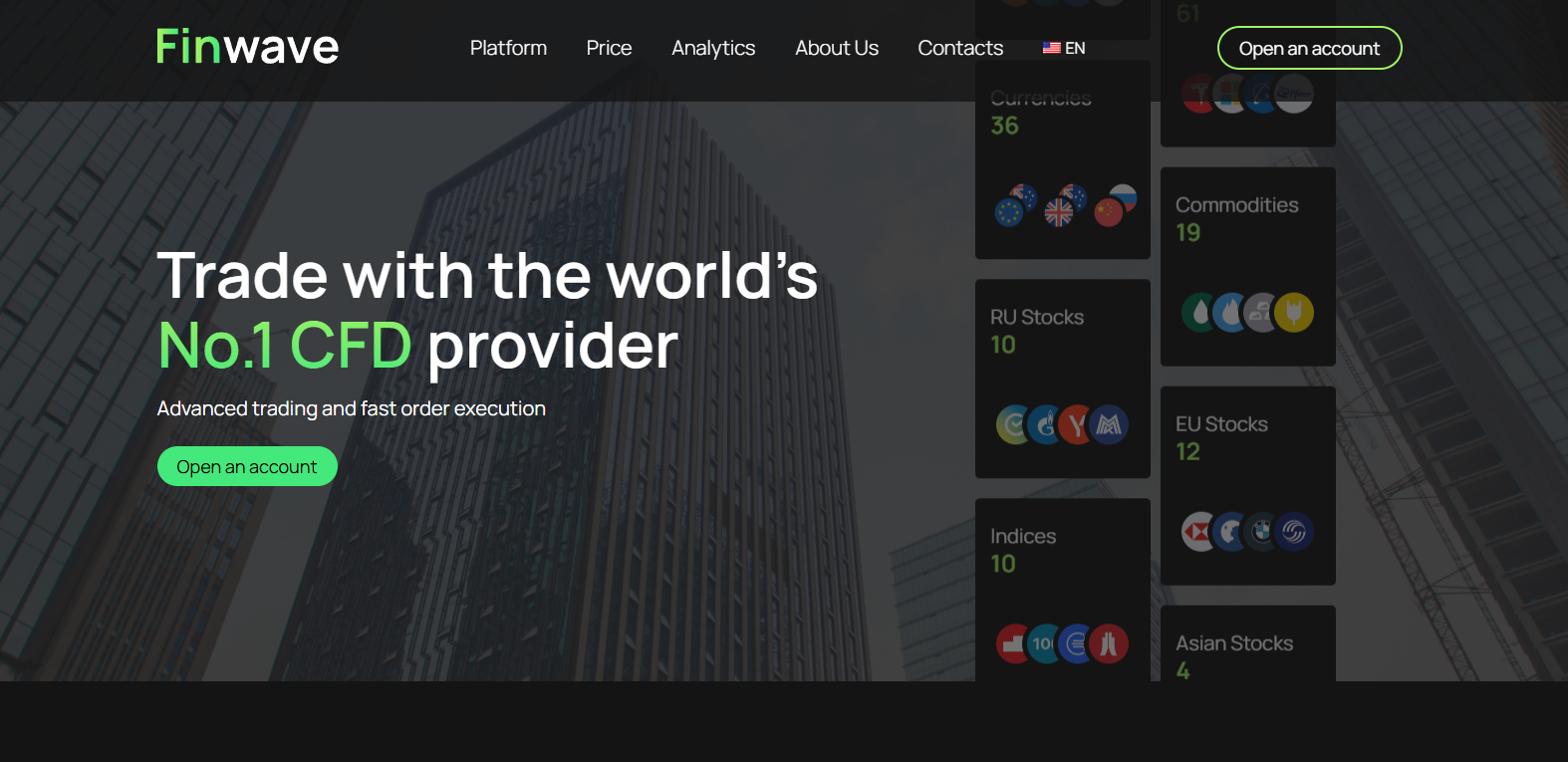
Below is a detailed, point-by-point analysis of Finwave’s legal status, trading conditions, account types, and client feedback.
Company Registration and Licensing
One of the most important aspects when choosing a broker is its legal standing and regulatory compliance.
- No Valid License
Despite displaying logos of prominent regulators such as FCA (UK), CySEC (Cyprus), and SEC (USA), Finwave is not listed in the official registries of any of these authorities. There is no valid license number, no registration data, and no verifiable regulatory oversight. - Offshore Setup
Finwave reportedly operates from St. Vincent and the Grenadines — a known offshore zone with no effective financial supervision over forex brokers. An address in Philadelphia (USA) is also listed on the website, but public business databases in the U.S. show no records of a legally registered entity under the Finwave name.
Conclusion: Finwave operates without a recognized license and uses offshore jurisdiction to avoid regulatory responsibility.
Domain and Company Age
- Recently Created Website
The domain finwave.group was registered in February 2024, making the broker very young. This is typical of fraudulent platforms, which tend to operate for short periods before disappearing.
A legitimate financial institution usually has a long-standing reputation, trackable performance history, and audit trails — none of which Finwave provides.
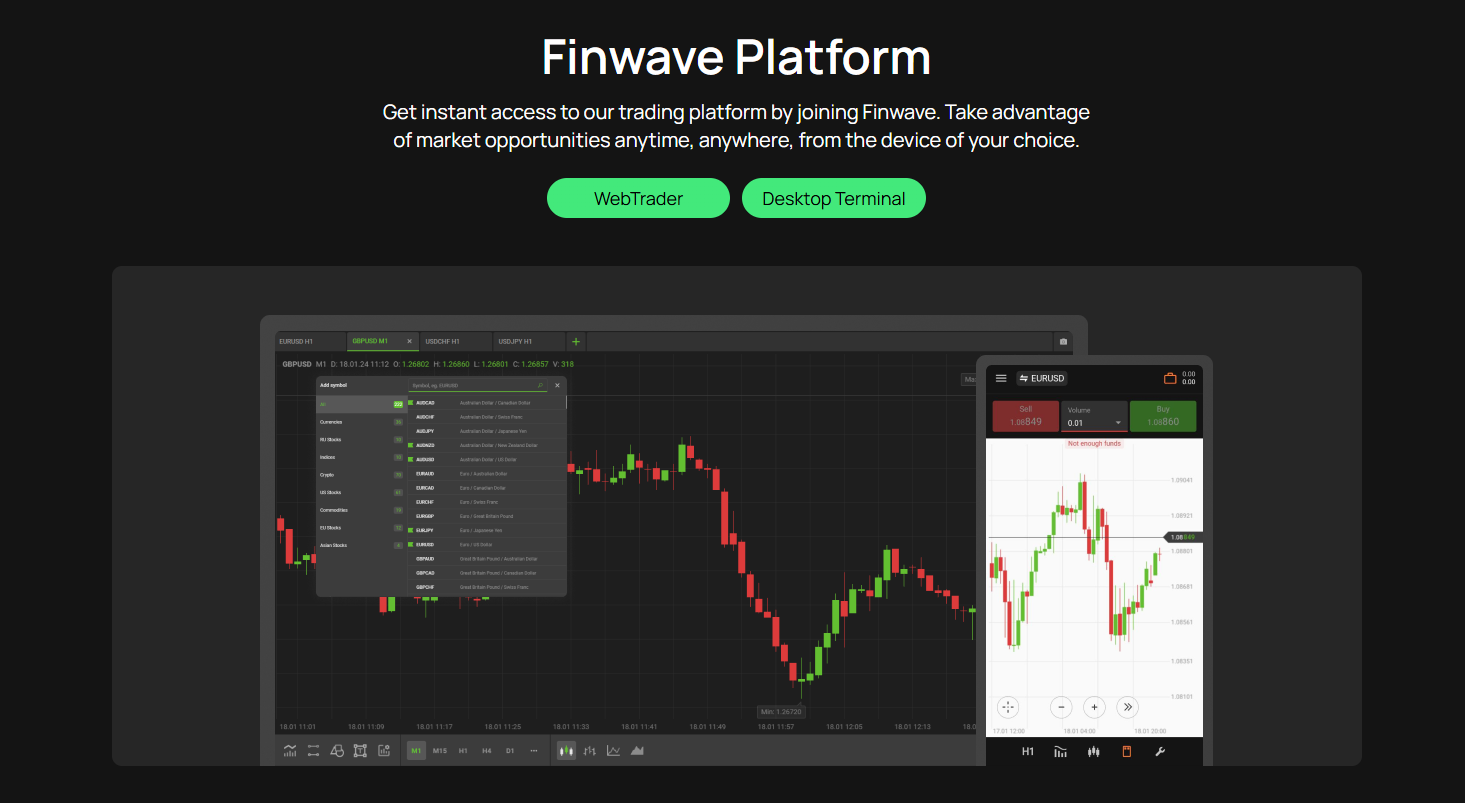
Account Types and Deposit Requirements
Finwave offers seven account tiers: Mini, Standard, Silver, Gold, Platinum, VIP, and ECN. Here are the key characteristics:
- Minimum deposit starts at $250 (Mini)
- Highest tier (ECN) requires up to $100,000
- Higher account levels offer supposed benefits like:
- Personal analyst
- Trade signals
- Insurance options
- Priority withdrawal (allegedly)
- Personal analyst
However, these benefits are not transparently defined, and are only available after large deposits. No clear terms or conditions are provided.
Trading Conditions and Platform Transparency
- No Disclosure of Trading Fees
Finwave does not disclose basic trading parameters such as:
- Spread levels
- Commission fees
- Leverage ratios
- Swap conditions
- Spread levels
- No Free Access to Real Trading Platform
Clients must deposit funds to access the real trading interface. Until then, only a demo mode is available, which typically shows unrealistic gains. - Crypto-Only Payments
Deposits are accepted only via cryptocurrency, which makes fund recovery impossible through traditional banks or chargeback processes.
This structure gives the broker full control over funds with zero accountability or transparency.
Client Interaction and Complaints
Numerous complaints have surfaced regarding Finwave’s communication practices:
- Clients are often contacted by pushy “account managers” pressuring them to deposit more funds.
- Once a client tries to withdraw money, the company imposes unexpected fees, long delays, or account restrictions.
- Some users report being told their accounts were “hacked” or “blocked due to security reviews” — standard excuses in scam operations.
Common patterns include: demo profit bait, high-pressure tactics, sudden losses, and withdrawal refusal.
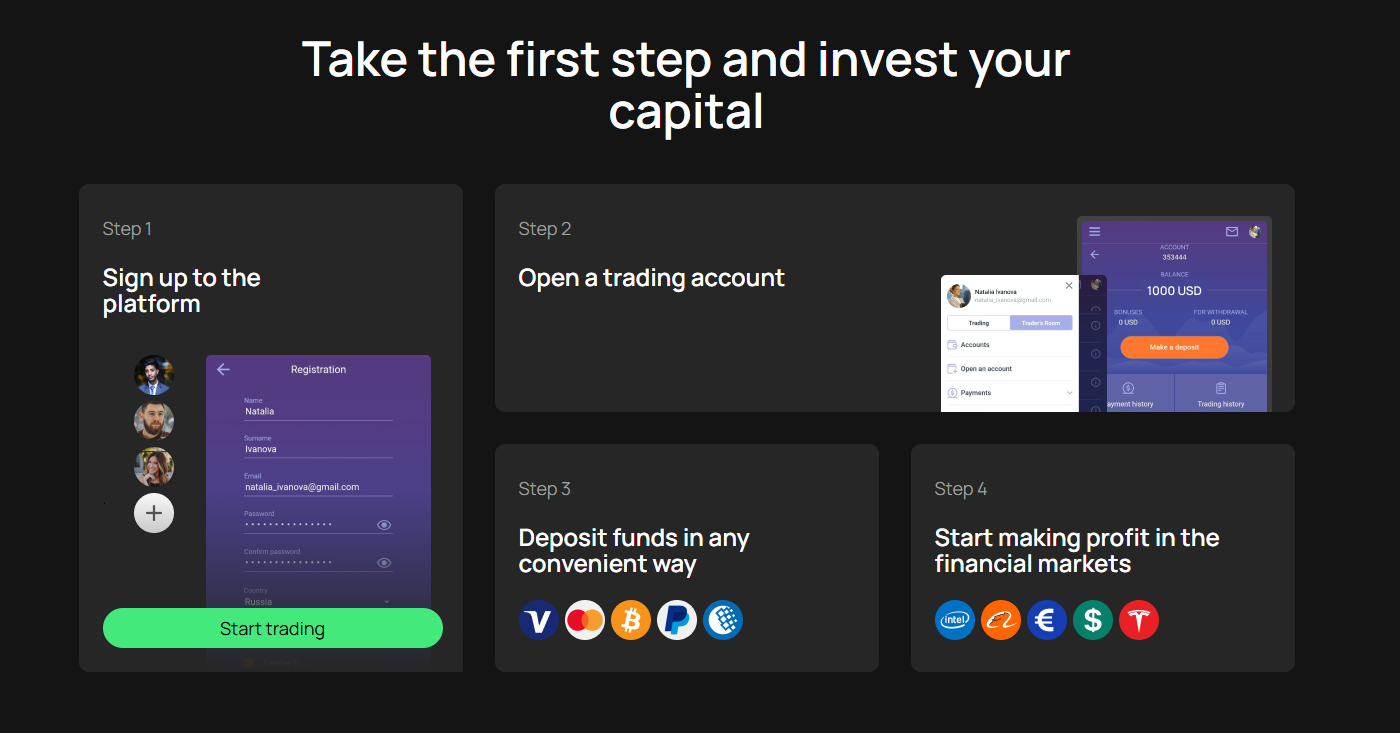
Key Risk Indicators
Several critical warning signs point to systemic issues with Finwave’s operations. First and foremost, the broker operates entirely without any regulatory license. There is no official oversight from financial authorities such as the FCA, CySEC, or ASIC — despite using their logos on the website. This alone places clients’ funds in a legally unprotected position.
Additionally, Finwave provides no corporate transparency. The company does not disclose its legal entity name, registration number, or ownership structure. This lack of accountability raises serious questions about who is actually handling clients’ money.
The broker is also associated with an offshore jurisdiction — St. Vincent and the Grenadines, which is widely known for having minimal regulatory requirements and no oversight of forex brokers. This further reduces the chances of legal recourse in the event of a dispute.
Another major red flag is the absence of clear trading conditions. Spreads, commissions, leverage, and asset availability are not disclosed until after a deposit is made — a practice highly uncharacteristic of trustworthy financial institutions.
All deposits are accepted exclusively in cryptocurrency, eliminating the possibility of reversing transactions through banks or payment systems. Combined with a non-transparent platform that is inaccessible until after funding an account, this structure gives the broker full control and leaves clients with no exit options.
Lastly, numerous user complaints suggest a recurring pattern of withdrawal refusals, aggressive upselling tactics, and unresponsive support. These patterns are consistent with known scam models in the trading space.
Final Verdict: Should You Trust Finwave?
Taking into account all of the above — lack of regulation, offshore setup, hidden trading conditions, crypto-only deposits, and a growing number of unresolved complaints — it becomes clear that Finwave is not a legitimate or trustworthy broker.
While the platform may present itself as modern and AI-driven, its underlying structure reveals a high-risk operation with no investor protection in place.
Recommendation:
Avoid using Finwave for any financial activity. Traders and investors should only work with brokers that are fully licensed and supervised by established regulatory bodies such as:
- The Financial Conduct Authority (FCA, UK)
- The Cyprus Securities and Exchange Commission (CySEC)
- The Australian Securities and Investments Commission (ASIC)
- The Federal Financial Supervisory Authority (BaFin, Germany)
Choosing a regulated broker means your funds are protected by law — not just promises.


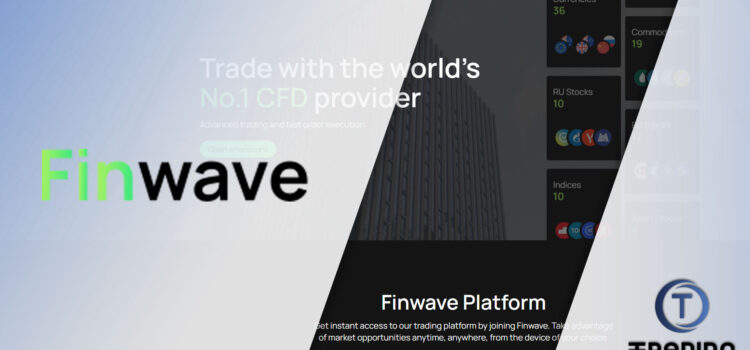
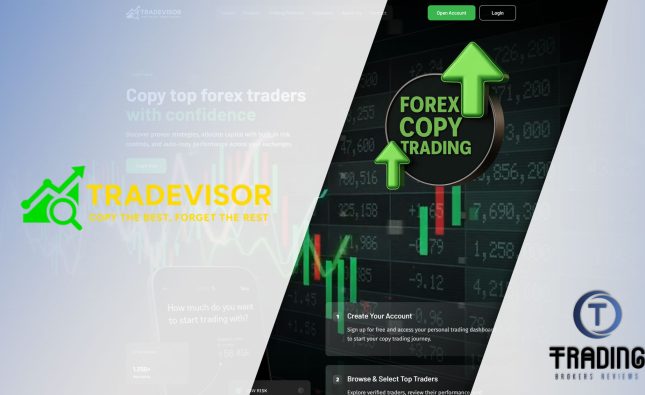
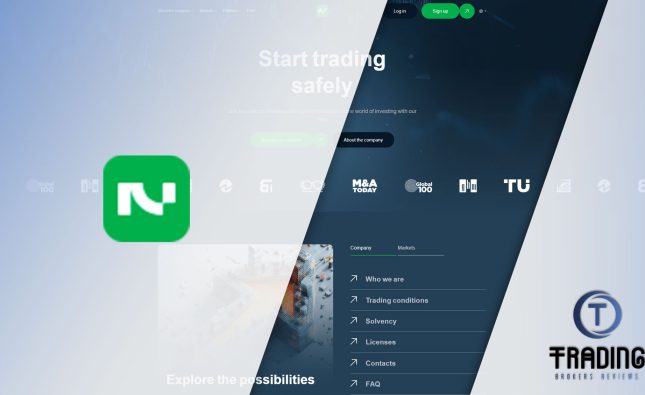
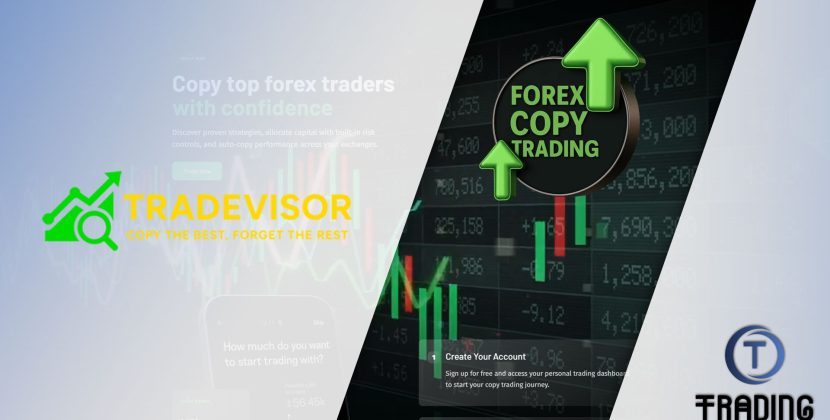
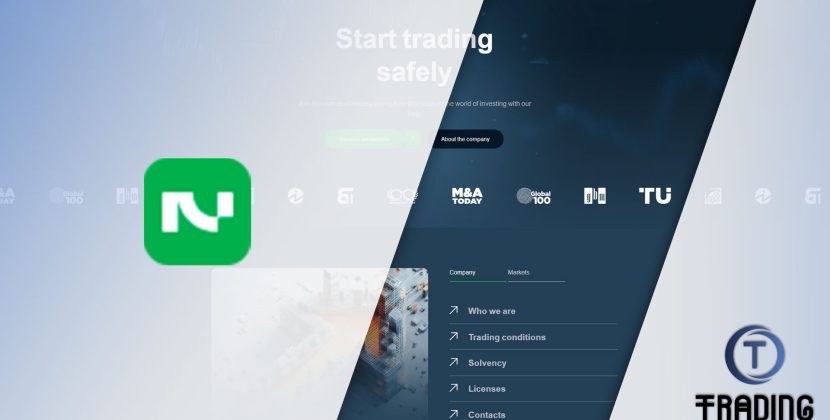
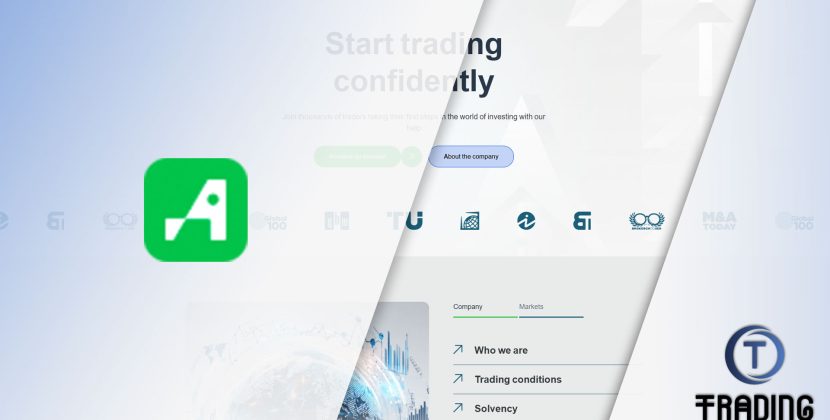
I was told that I needed to pay a 30% ‘tax fee’ before they could release my withdrawal. I refused, and they locked my account. Classic scam tactics — don’t trust these people.
The website looks professional, but don’t let that fool you. They have no license, no regulator, and no responsibility